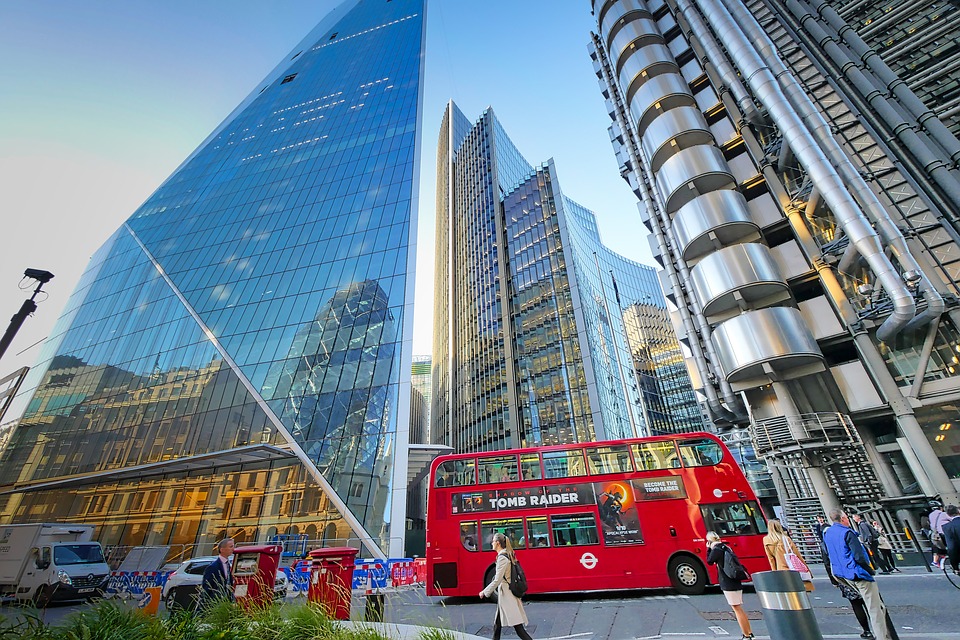Despite a successful vaccination programme and a post-lockdown boom, what challenges await the UK economy in 2022?
The UK’s successful vaccination programme and subsequent re-opening boost led us to hold an overweight in UK equities for much of the year. But challenges are now mounting for the UK economy and we moved to an underweight position in mid-September, reflecting the more cautious approach to risk in the portfolio as a whole.
Things were looking good for the UK economy in the Spring of 2021. The UK underwent one of the strongest vaccine-led recoveries in developed markets. Services PMIs moved comfortably into expansion territory as economic activity came back online in many sectors that had been effectively shut down because of lockdown restrictions. In addition, UK equities were trading at a discount to the richer valuations in other developed markets, largely due worries about the ongoing impact of Brexit. As the year progressed, the preference towards the UK proved rewarding as UK equities gained strongly over the YTD period.
To find out more about how we can assist you with your Second Charge Mortgage please click here
A year of two halves
However, that re-opening boost is now firmly in the past and the UK economy now faces several challenges that have led us to reduce our exposure. First, inflation is becoming a major headache for the Bank of England. The current bout of price rises is in part due to pandemic-related bottlenecks. However, unlike the Federal Reserve and the ECB, the Bank of England still views its 2% inflation target as an upper limit rather than an average, and therefore feels duty-bound to act sooner to curb inflation. The recent guidance from the Bank of England has directed markets to expect a rate hike soon. However, we feel this would likely be a mistake given the weakness now showing in the UK’s economic growth.
Second, Covid-19 cases are once again rising in the UK, with hospitalisations and deaths now at their highest levels since March. Even though the government may not act to re-introduce official restrictions, people may choose to avoid activities with a higher likelihood of transmission anyway if they feel unsafe. Recent news of another virus mutation potentially more transmissible than the Delta variant only serves to underscore how fast the narrative could change for the worse.
Third, September marked the end of the furlough scheme that subsidised the wages of workers that would have been laid off due to the pandemic. Data on the impact that this will have on the jobs market is still coming in, but the transition adds additional uncertainty to the labour market. The effects of Covid-19 coupled with Brexit has led to a well-publicised acute shortage of workers in a number of roles, such as HGV drivers.
Hospitality too has experienced a shortage of workers, while at the same time trying to meet the increased demand associated with the economic re-opening. This is something I can attest to anecdotally, having recently been out marketing around the UK. A recurring theme in the hotels and restaurants I have visited is one of not enough staff to fill vacancies resulting in not all facilities being available. These staff shortages are having a knock-on effect on business and growth.
Lastly, the recent surge in energy prices in the UK is a serious concern. The UK use a relatively large proportion of natural gas to generate its electricity, and is more exposed to the extreme price moves. While the most obvious impact is higher inflation, we believe that markets are underestimating the potential hit to growth in both the UK and Europe, particularly if the winter is colder than usual and gas supply constraints do not improve.
What now?
As a result of the worsening outlook for the UK, we have lowered the exposure to the UK in the Open range. This mirrors our more cautious view of risk in general, having also moved to underweight equities overall. Global growth is slowing, inflation is a concern in many developed markets, and the fallout from China’s shift in direction of policy could yet spread to other markets. We have increased our cash position, especially in light of the inflation concerns weighing over government bonds, and have increased holdings of defensive equities such as utilities to add protection in the event of a market correction.
By Chris Forgan
Source: Money Marketing
Discover our Second Charge Mortgage Broker services.






